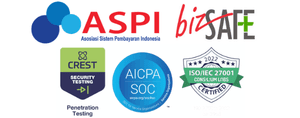
Identify Vulnerabilities
Detect configuration errors, outdated components, and security loopholes within the Active Directory environment.

Assess Compliance
Evaluate the adherence of the AD setup to industry standards and regulatory requirements.

Recommend Enhancements
Provide actionable advice to mitigate identified risks, improve security measures, and ensure best practices are implemented.

Enhance Security Awareness
Equip your IT team with the knowledge to maintain and manage a secure AD environment.
Methodologies
Our assessment follows a structured approach, incorporating both automated scanning and manual expert analysis to ensure a thorough evaluation:
- Initial Consultation: Understand the organization’s structure, critical assets, and specific security concerns.
- Environment Review: Analyse AD architecture, including domain services, policies, and access controls.
- Vulnerability Scanning: Employ advanced tools to systematically identify and categorize vulnerabilities.
- Penetration Testing: Simulate attack scenarios to evaluate the resilience of the AD environment.
- Risk Assessment: Assess the potential impact and likelihood of identified vulnerabilities.
- Remediation Planning: Develop strategic recommendations for mitigating risks and enhancing security.
Testing Scope
Active Directory Security Assessment typically includes, but is not limited to:
Reconnaissance:
Gather information about the AD environment, including domain structure, user accounts, and network topology.
Enumeration:
Identify AD objects such as users, groups, organizational units, and computers.
Credential Testing:
Test for weak passwords, password policies, and possible credential leaks.
Privilege Escalation:
Identify and exploit misconfigurations or vulnerabilities to escalate privileges.
Trust Relationship Exploitation:
Analyze and exploit trust relationships between domains and forests.
Lateral Movement:
Simulate movement within the network to access additional resources.
Post-Exploitation:
Assess the impact of successful attacks and gather sensitive information.
Our Deliverables
Clients will receive a detailed report and ongoing technical support until all risks have been removed.
Executive Summary:
A high-level overview of the analysis process, key findings, and an executive risk summary.
Detailed Vulnerability Report:
In-depth descriptions of each identified vulnerability, including its location in the code, risk rating, potential impact, and evidence.
Compliance and Best Practices Review:
An assessment of the application’s adherence to industry security standards and recommendations for alignment with best practices.
Remediation Recommendations:
Step-by-step guidance for remediating identified vulnerabilities, along with suggestions for improving coding practices to enhance security.
Contact Us
Our team of experienced security professionals is committed to delivering actionable results to enhance your organisations security posture. Please click the ‘Contact Us’ button below to get in touch with our team.



